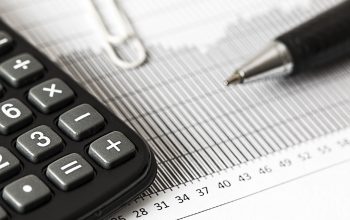If you can't pay your self-assessment bill to HMRC by January the 31st you should follow our advice and get...
When do I need to complete a tax return?
There are several instances where you’ll be obliged to fill out and submit a tax return to HMRC. Typically if you had income which exceeds various personal tax allowances; received any income from rented property; are self-employed; or HMRC have written to you to ask for a tax return to be completed. Additionally, if you run a limited company, the company is obliged to file annual statutory paperwork which includes a corporation tax return and a VAT return for companies registered for VAT.
It’s important to ensure that, whichever tax returns you’re required to send to HMRC, they’re complete, accurate and on time. HMRC, despite their reputation, are generally helpful and approachable towards those who are struggling and get in touch to seek help before a deadline. So if you’re having difficulty with any aspect of your return, speak to them first.
My return is late, what now?
If, for whatever reason, you submitted your tax return after the deadline or have yet to submit it to HMRC, then it’s likely you’ll receive a fine. In addition to a late return, fines can also be issued for inaccurate returns and being late in paying any tax you owe.
For the most part, if you’ve received a penalty letter, then it’s best to pay the fine and make sure you’re better organised for next time. However, if you believe that the fine either shouldn’t have been issued, or there is a genuine, reasonable, and acceptable excuse why you missed the deadline, then there’s an appeals process to argue your case.
Appealing the fine for a late tax return
Included in the letter from HMRC will be a form to appeal against any fine that’s been issued. There are a variety of appeal processes depending on the type of tax your return was in respect of. In any case, you must submit your appeal within 30 days of receiving the letter or risk your appeal being rejected whether valid or not.
HMRC has a non-exhaustive list of what might count as a reasonable excuse for returns or payments being late and also a list of what almost certainly won’t count. It’s worth reviewing these before you consider appealing.
While serious personal circumstances may well be considered as reasonable, blaming HMRC’s system for being hard to use, blaming the person you rely on to complete your return for you, or not having the funds to pay probably will not be considered. HMRC occasionally publish lists of the worst excuses they’ve received for failing to submit a return and these are worth tracking down. Hopefully, you weren’t planning on using any of them!
Is the fine a symptom of a larger problem?
As insolvency practitioners, we find that struggling to pay tax owed is one of the first signs of a business in trouble. HMRC can often be left to the bottom of the priority list when outgoings begin to exceed available funds.
If this has been the case for you, our advice, firstly, is to stop things getting worse. Pay the fine and submit your return (if you’ve not already done so) or speak to HMRC straight away if you can’t. Fines for a missing return or for tax paid late or unpaid, increase the longer they’re left. Secondly, take this as a warning sign that something’s gone wrong somewhere and get in touch with us to help you find it.
As said before, late payment of tax or the late filing of returns, are often the first signs of insolvency and if you act quickly, we can help you fix the underlying issues and potentially save your business. Get in touch, we can help.



